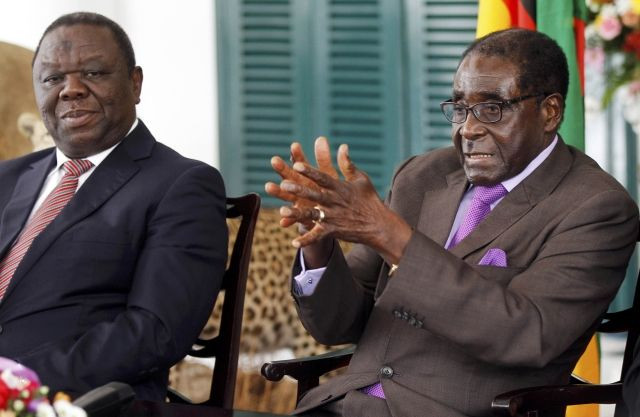Zimbabwe Had Only $217 In Its Account Last Week, Minister Says

Thankfully Zimbabwe didn’t have a dinner date last week, when the country had only $217 left in its account.
Zimbabwe's Finance Minister Tendai Biti made the announcement at a press conference in Harare Wednesday that the country's cash on hand was almost completely wiped out after paying the salaries of civil servants last Thursday.
However, some $30 million of revenue was credited into the government accounts the following day.
Biti told BBC that he made the revelation to clarify that the government was unable to finance elections, not that it was insolvent. Officials estimate that the country needs $200 million to organize a referendum on a new constitution and to hold elections.
“We will be approaching the international community to assist us in this regard, but it’s important that government should also do something,” he said.
The country hit the headlines in January 2009 when it introduced the 100-trillion Zimbabwe-dollar note. Due to the country's hyperinflation that the country had been experiencing from 2001, this humongous denomination was worth only about $30. (At least it's up from the $5 it was worth last year.)
Despite signs of gradual stabilization, Zimbabwe’s economy continues to be in tatters after years of crisis due to inflation, de-industrialization, an energy crisis and food shortages.The economy boomed after independence in 1980 but took a tumble in 1997.
President Robert Mugabe has had an iron grip over the nation since he assumed power in 1980. In 2008 he agreed to a power-sharing deal with the opposition following months of political turmoil. The seizure of agricultural land from white owners hit the agriculture sector hard, and the economy shrank by half. Zimbabwe effectively abandoned its national currency in 2009 in favor of foreign currencies.
Biti’s statement about the country's finances has not only become the butt of jokes, but raised questions about whether the government is trying to delay elections.
“While it is probably perfectly true, Biti’s position supports the argument of his party — Prime Minister Morgan Tsvangirai’s faction of the Movement for Democratic Change (MDC-T) — that the elections should be delayed,” wrote Simon Allison for Daily Maverick.
The 2008 elections saw Mugabe narrowly losing the initial vote, which was close enough to mandate a second round. However, the violence and torture perpetrated by forces loyal to Mugabe compelled the opposition MDC to pull out and Mugabe managed to win the re-election with 86 percent of the votes cast.
The opposition subsequently joined the government following the power-sharing deal. Mugabe was sworn in June 29, 2008, and the presidential and parliamentary term of office ends June 29, 2013. Zimbabwe’s constitution, however, allows some delay according to which elections have to be held no later than Oct. 29.
© Copyright IBTimes 2024. All rights reserved.






















